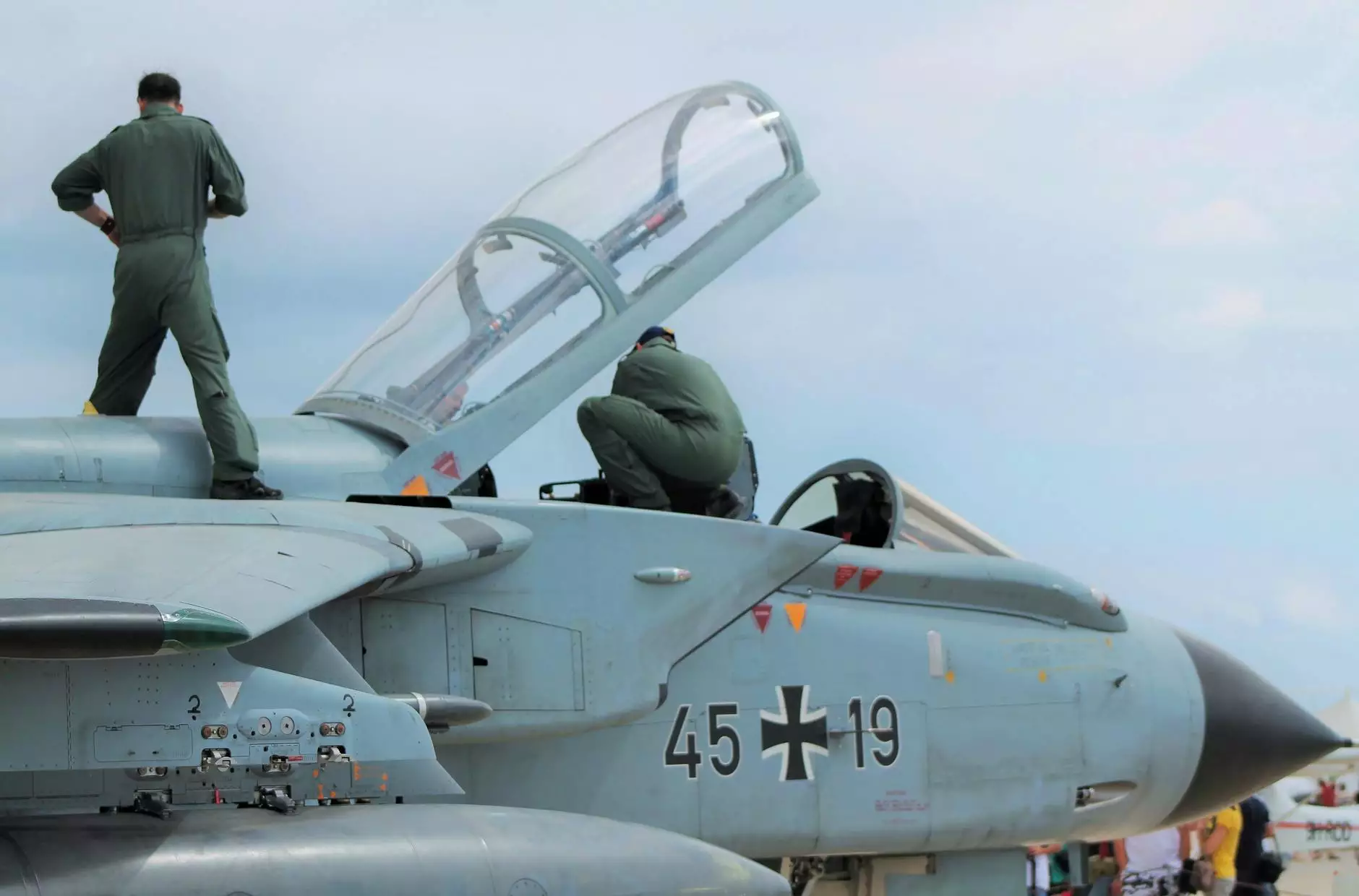How to Become a Flight Captain

Introduction
Gaining the skills and experience necessary to become a flight captain is a unique and fulfilling journey. Aspiring pilots often dream of sitting in the captain's seat, leading a crew, and guiding an aircraft through the skies. This article will provide you with comprehensive information and actionable steps towards achieving your dream of becoming a flight captain. Whether you're just starting your aviation journey or looking to advance in your career, AcademicRelated.com is here to guide you every step of the way.
Understanding the Role of a Flight Captain
Before embarking on the path to becoming a flight captain, it is crucial to understand the responsibilities and qualifications associated with this esteemed position. A flight captain, often referred to as the pilot-in-command (PIC), is the individual ultimately responsible for the safe and efficient operation of an aircraft during flight. The flight captain leads the crew, makes critical decisions, and ensures the overall safety of the passengers, crew, and cargo.
Qualifications and Experience
To become a flight captain, a high level of training, experience, and qualifications is essential. The following is a list of common requirements:
- Obtaining a Private Pilot License (PPL): This is the first step towards becoming a flight captain. The PPL allows you to fly as pilot-in-command for non-commercial flights.
- Pursuing a Commercial Pilot License (CPL): Building on the PPL, a CPL enables you to earn income as a pilot. It involves advanced flight training and theoretical knowledge examinations.
- Accumulating Flight Hours: Gaining flight experience is a crucial aspect of becoming a flight captain. Many airlines require a minimum number of flight hours, typically ranging from 1,000 to 1,500 hours, before considering a candidate for a captain position.
- Obtaining an Air Transport Pilot License (ATPL): An ATPL is the highest level of pilot certification and is often a requirement for becoming a flight captain in commercial airlines. It involves a rigorous training program, including extensive flight hours and theoretical examinations.
Additional Certifications and Ratings
In addition to the core licenses, there are several certifications and ratings that can enhance your qualifications as a flight captain:
- Instrument Rating (IR): An IR allows pilots to fly an aircraft solely by reference to instruments, enhancing their ability to navigate through adverse weather conditions.
- Multi-Engine Rating (ME): A ME rating enables pilots to operate aircraft with multiple engines, broadening their career opportunities.
- Type Rating: Type ratings are aircraft-specific certifications that authorize pilots to operate specific aircraft models. Obtaining type ratings can significantly enhance your employability.
Career Path to Becoming a Flight Captain
The journey towards becoming a flight captain can vary depending on individual circumstances and career choices. Here are some common steps:
Flight Training
Embarking on flight training is an exciting and crucial step towards becoming a flight captain. The training process involves both theoretical knowledge and practical flight lessons.
Airline Cadet Programs
Many commercial airlines offer cadet programs, which provide a structured pathway for aspiring pilots to advance their careers. These programs often involve sponsorship, training, and job placements, expediting the path to becoming a flight captain.
Building Flight Experience
Accumulating flight hours is vital for career progression in aviation. As an aspiring flight captain, gaining experience as a co-pilot or first officer is a typical starting point. This allows you to refine your skills and work closely with experienced captains.
Promotion to Captain Position
After gaining the necessary experience and meeting the requirements set by airlines, pilots are eligible for promotion to the position of flight captain. This promotion marks a significant milestone in a pilot's career and opens up new opportunities for advancement.
Tips and Strategies for Becoming a Flight Captain
1. Continuous Learning:
To excel as a flight captain, it is essential to adopt a mindset of continuous learning. Stay updated with the latest aviation regulations, technological advancements, and industry trends. Pursuing additional training, attending seminars, and participating in aviation forums can help you stay at the forefront of your field.
2. Networking and Mentorship:
Building a strong professional network can provide valuable insights and opportunities in your journey to becoming a flight captain. Connect with experienced pilots, join aviation associations, and seek out mentorship programs to learn from those who have already achieved the rank of captain.
3. Mastering Cockpit Resource Management:
Effective communication, teamwork, and decision-making skills are crucial for a flight captain. Cockpit Resource Management (CRM) training focuses on enhancing these skills, allowing pilots to effectively lead their crew and manage challenging situations.
4. Seeking Leadership Opportunities:
Take advantage of any leadership opportunities that arise during your aviation career. Volunteering for additional responsibilities, such as being a flight instructor or participating in safety committees, not only enhances your skills but also demonstrates your commitment to professional growth.
5. Maintaining a Strong Safety Culture:
Safety is of paramount importance in aviation. Aspiring flight captains should prioritize developing and promoting a strong safety culture. Embrace safety procedures, participate in safety training, and continuously strive for improved safety practices.
Conclusion
Becoming a flight captain is an ambitious goal, but with dedication, hard work, and the right education, it is within reach. By following the steps outlined in this article and leveraging the resources available at AcademicRelated.com, you can embark on a fulfilling career as a flight captain. Remember, the sky is not the limit, it's just the beginning of your journey towards soaring to new heights in your aviation career.
how to become a flight captain



